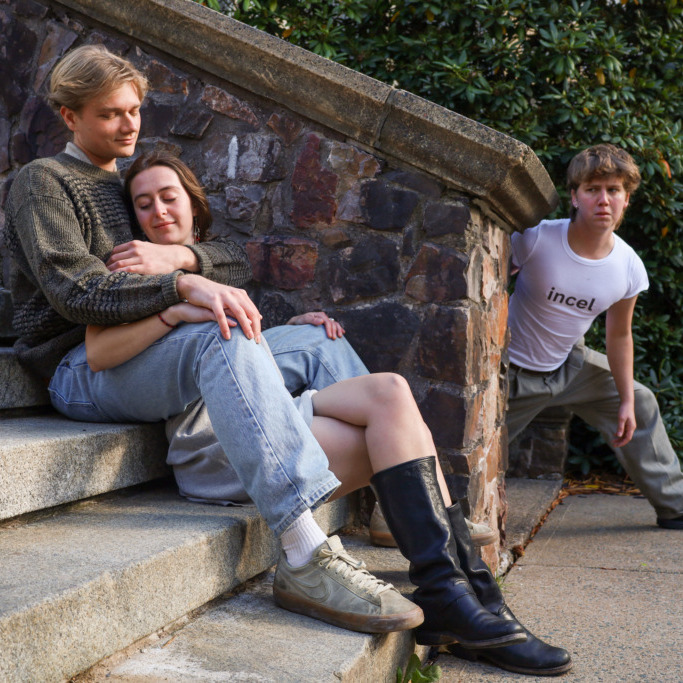
From incel forums to the campus: How manosphere ideology and online misogyny are reaching universities
Dalhousie students and faculty look at the dangers of these extreme views
“Not only do I genuinely hate [women], I want nothing more than to see them physically and sexually tortured and then discarded like the garbage they are.”
This is just one of the thousands of comments posted on incel.is, an online forum for individuals who identify as “involuntarily celibate,” according to its website.
According to a 2022 study from Dalhousie University sociology professor Michael Halpin, “Incels simultaneously situate themselves as failed, hopeless losers while celebrating, encouraging, and participating in violence against women.”
The study found that 64 per cent of incel.is users are between the ages of 18 and 25, with 39 per cent of users enrolled in or having completed college.
But are students noticing misogynistic rhetoric seeping into university environments?
Brianna, whose name has been changed to protect her identity, is a third-year management student at Dalhousie. She’s noticed a rise in misogynistic views in her classes.
A few weeks ago, Brianna’s finance professor asked her class if they thought women could be executive leaders.
“It was obvious that he was trying to provoke in a joking way, … but someone raised their hand and dead seriously said, ‘I don’t think so.’”
Luc Cousineau is an instructor in Dalhousie’s school of health and human performance and the co-director of research at the Canadian Institute for Far-Right Studies. He researches critiques of masculinity and men’s rights groups.
“There are incels who have a very nihilistic view of the world,” Cousineau said. “Because of their views around access to sex and women, they have a ‘burn it all down’ attitude that we are seeing generate violence. But there’s also quite a large group of incels that are non-violent.”
Cousineau said incels differ from other men’s groups operating on and offline.
“The manosphere is best described as a loose confederation of different groups,” he said. “They all want different things, and they’re all talking in different ways. What joins them is this pro-man, anti-feminist thing. They look at gender and gendered relationships in problematic ways.”
The rhetoric is spread online by social media figures like Andrew Tate. The 38-year-old influencer — who has millions of social media followers — built his platform by posting videos of himself stating that men should have authority over women.
Social media algorithms are “rapidly amplifying misogynistic and male supremacist content,” according to a 2024 study from Dublin City University’s Anti-Bullying Centre. Researchers found that male-identified profiles were fed “anti-feminist and other extremist content” within 23 minutes of creating an account on TikTok and YouTube Shorts — even when they didn’t seek out male supremacist-related content.
Kathleen Cawsey, a Dalhousie English professor, researches medieval literature. About a decade ago, she and other medievalists began noticing that people with extreme right-wing views were turning to medieval studies to justify their beliefs.
“They have this idea of the Middle Ages as being this patriarchal, masculine, white society, and they use images from those times, ‘When men were men and women were barefoot and pregnant,’” Cawsey said. “They’re attracted to ideas of honour and loyalty and all of those qualities that are good by themselves, but when they’re twisted, they become problematic.”
In her classes, Cawsey counters the misogynistic ideas from the medieval period by discussing the sexist, racist and homophobic elements of the content she teaches.
“I teach a lot of texts that have rape, sexualized violence, stalking and very problematic views of women,” Cawsey said. “I try to make those more complex. I also think, where else can we talk about those things if not in the university classroom?”
Cawsey said she’s “only encountered a couple of students” expressing extreme right-wing views in her classes.
“I did have one white supremacist,” she said. “I now lock my discussion boards, but he put up some really problematic links.”
Brianna recalled a marketing professor who, after another student gave an example about cars, said, “Now one for the girls.”
“I was just like, ‘Okay, that’s a bit of an eye-roll.’”
Cousineau isn’t aware of any studies in Canada examining how manosphere culture is impacting university classrooms, but said he’s seen an effort from schools to address the harmful ideologies.
“Certainly we’ve seen universities over the last 10 years push much harder on their approach to consent,” Cousineau said. “When we’re talking about violent misogynistic ideology, understanding consent in a fulsome way is really important. It helps us push back against misogynist and violent misogynist ideology.”






